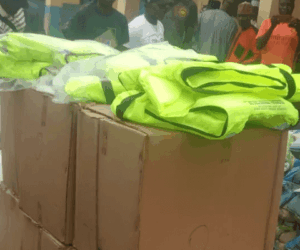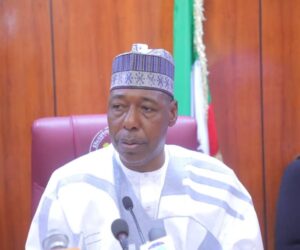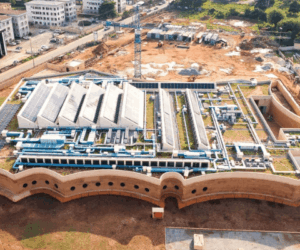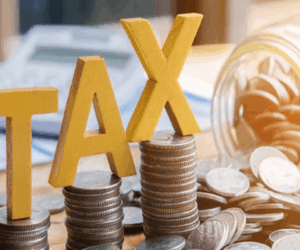Another example is Saudi Arabia, which, despite being one of the world’s largest oil producers with a total daily refining capacity of 2.9 million b/d, also imports and stores refined petroleum products to ensure energy security.
“Saudi Arabia, with five refineries and a refining capacity of 2.9 million b/d, still imports and stores refined products as part of its energy security strategy,” Abiodun pointed out.
Similarly, other major oil-producing countries, including the UAE, Bahrain, Qatar, and Oman, also import and store petroleum products for energy security.
Abiodun concluded by arguing that allowing Dangote Refinery to be the sole supplier of refined petroleum products in Nigeria would make it a monopolist in the petroleum sector, a critical industry for Nigeria’s economy and energy security.
“No country in the world has developed or will ever develop by encouraging monopoly in any of its key economic sectors,” he emphasised.
POLITICS NIGERIA earlier published an investigative report on Dangote’s brazen attempt to deceive Nigerian lawmakers over the quality of AGO produced in his refinery as he battled the NMDPRA over its refusal to withdraw import licences. The report led to the dissolution of the House Committee on Downstream Petroleum, led by Hon. Ikenga Ugochinyere.”
If Dangote delivers the knockout blow to fuel importers, the consequences for the banking sector, to which oil importers are massively indebted, would be very serious. The available data suggest that both local and international banks would be vigorously chasing the staggering amount of N3.5 trillion.
This is the time to pause for “BREAKING NEWS” by CNN: “EX-EFCC BOSS BAWA EXPOSES SHOCKING TACTICS BEHIND NIGERIA’S PETROL SUBSIDY FRAUD”
“A former chairman of the Economic and Financial Crimes Commission [EFCC], Abdulrasheed Bawa, has given an insider narrative on how the petrol subsidy was perpetrated.
In his groundbreaking new book, titled, “The Shadow of Loot & Losses:
In Uncovering Nigeria’s Petroleum Subsidy Fraud, published by Cable Books, an imprint of Cable Media & Publishing Limited, Bawa unravels the inner workings of one of the country’s most pervasive financial crimes.
The strategies, he writes, include ghost importing and over-invoicing; submission of claims for fuel that was never imported; inflated shipment volumes to receive excessive subsidy payouts; manipulation of bills of lading by altering shipping documents; and fraudulent exploitation of international price fluctuations to claim higher subsidies.
Others are round-tripping and double claiming; using single shipments to obtain multiple subsidy payments; diversion and smuggling; and diversion of subsidised fuel to black markets or smuggling for high profit.
Bawa, in a statement by Vic Akinrogunde, said the book is a powerful exposé that provides the most authoritative account yet on Nigeria’s multi-trillion naira fuel subsidy scandal.
Drawing from his firsthand experience as a key investigator on the EFCC’s special team that probed the 2012 subsidy fraud, Bawa reveals the staggering scale, complexity, and audacity of the schemes used to syphon public funds under the guise of fuel subsidy payments.
His insider narrative chronicles how billions of naira were recovered and several culprits brought to justice, while also shedding light on how entrenched corruption allowed the fraud to flourish for years.
These practices, Bawa explains, were enabled by forged documents, weak regulatory oversight, and systemic collusion between corrupt government officials and private sector actors.
“The ‘Shadow of Loot & Losses’ is not just a chronicle of fraud,” Bawa said.
“It is a call to action, a demand for transparency, accountability, and reform in Nigeria’s public finance management, especially in the oil sector.”
Having served as EFCC chairman from 2021 to 2023, Bawa brings a rare credibility and insight into the institutional challenges and political dynamics that have shaped the anti-corruption fight in Nigeria.
The statement said the book is both a revelation and a reckoning, offering evidence-based analysis and personal reflections on one of the most controversial chapters in Nigeria’s recent history.
“The book is essential reading for policymakers, civil society advocates, journalists, and citizens interested in understanding how systemic fraud undermines development and how it can be confronted,” the statement added.
Regarding the prospects of Nigeria Beyond Oil, Mr Dele Alake, the Minister of Solid Minerals, has gone viral:
“When we came into office, Nigeria’s solid minerals sector was underperforming.
In 2023, it generated just N6 billion in revenue. By the end of 2024, that number had grown to N38 billion. That kind of turnaround tells you something is working.
One of the first things we did was tighten the licensing process. We made it clear that no one gets a mining licence without showing a real plan for local processing. Exporting raw minerals without adding value here at home wasn’t helping our economy, and we had to stop that processing. Since then, we’ve seen real results of over $800 million in processing investments last year alone.
We’ve got a $600 million lithium processing plant near Kaduna and Niger about to be commissioned. Another $200 million refinery near Abuja is nearly ready. Two more plants are coming online in Nasarawa before the third quarter of this year. These projects mean jobs, technology, and a stronger local economy.
Exploration has also been a priority. When we took office, Nigeria had spent only $2 million on mineral exploration. By comparison, Côte d’Ivoire spent $148 million, and South Africa more than $300 million.









